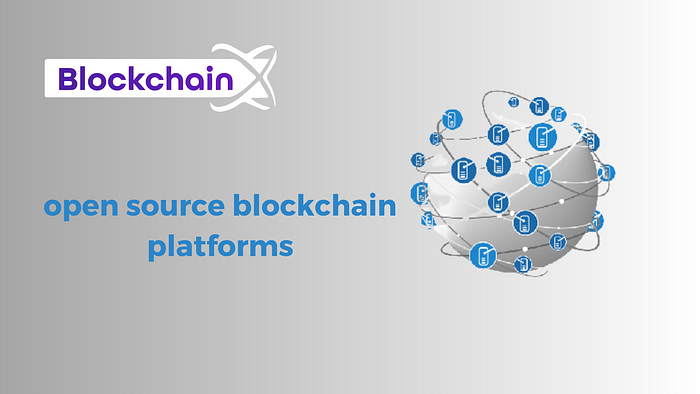There are several popular platforms for developing blockchain applications. Here are some of them:

- Ethereum: Ethereum is one of the most widely used platforms for blockchain development. It supports smart contracts and decentralized applications (DApps) and has a large developer community. Ethereum uses its programming language called Solidity.
- Hyperledger Fabric: Hyperledger Fabric is an open-source blockchain framework hosted by the Linux Foundation. It provides a modular architecture that allows for flexibility and customization. Hyperledger Fabric is suitable for building enterprise-grade blockchain applications.
- Corda: Corda is a distributed ledger platform specifically designed for businesses. It focuses on privacy and allows for the sharing of data between specific parties while keeping other information confidential. Corda is popular in industries such as finance, supply chain, and healthcare.
- EOSIO: EOSIO is a blockchain platform that aims to provide high scalability and low latency for decentralized applications. It supports parallel processing and has its programming language called C++-like EOSIO.CDT.
- Stellar: Stellar is an open-source blockchain platform that focuses on facilitating fast and low-cost cross-border transactions. It offers a decentralized exchange and supports the issuance and management of digital assets.
- TRON: TRON is a blockchain platform that focuses on creating a decentralized entertainment ecosystem. It enables the development and deployment of decentralized applications for gaming, content sharing, and social media.
- NEO: NEO is a blockchain platform that aims to create a smart economy by digitizing assets and automating the management of digital identity and contracts. It supports multiple programming languages, including C#, Java, and Python.
Popular platforms for developing blockchain applications:
- Cardano: Cardano is a blockchain platform that aims to provide a secure and scalable infrastructure for the development of decentralized applications and smart contracts. It emphasizes academic research and a layered architecture for enhanced security.
- Polkadot: Polkadot is a multi-chain platform that enables the interoperability of different blockchains. It allows developers to create and connect custom blockchain parachains, which can share security and consensus mechanisms while maintaining their own governance and logic.
- Tezos: Tezos is a self-amending blockchain platform that utilizes on-chain governance to enable protocol upgrades without hard forks. open source blockchain platforms, It provides a formal verification feature for smart contracts, enhancing security and reliability.
- Avalanche: Avalanche is a platform designed for building highly scalable and decentralized applications. It utilizes a consensus protocol called Avalanche consensus, which enables fast transaction finality and supports the creation of custom blockchains.
- Binance Smart Chain (BSC): Binance Smart Chain is a blockchain platform developed by the cryptocurrency exchange Binance. It provides compatibility with the Ethereum Virtual Machine (EVM), allowing developers to deploy Ethereum-compatible smart contracts at a lower cost and higher throughput.
- Algorand: Algorand is a blockchain platform that focuses on scalability, security, and fast transaction finality. It employs a pure proof-of-stake consensus mechanism and offers developer-friendly features for building decentralized applications.
- Cosmos: Cosmos is a network of interoperable blockchains that enables communication and data exchange between different chains. It provides a framework for building sovereign and scalable blockchains while maintaining interoperability.
These are just a few examples, and there are many other blockchain platforms available for developing applications. The choice of platform depends on the specific requirements of your project, such as scalability, privacy, programming language preferences, and target industry.